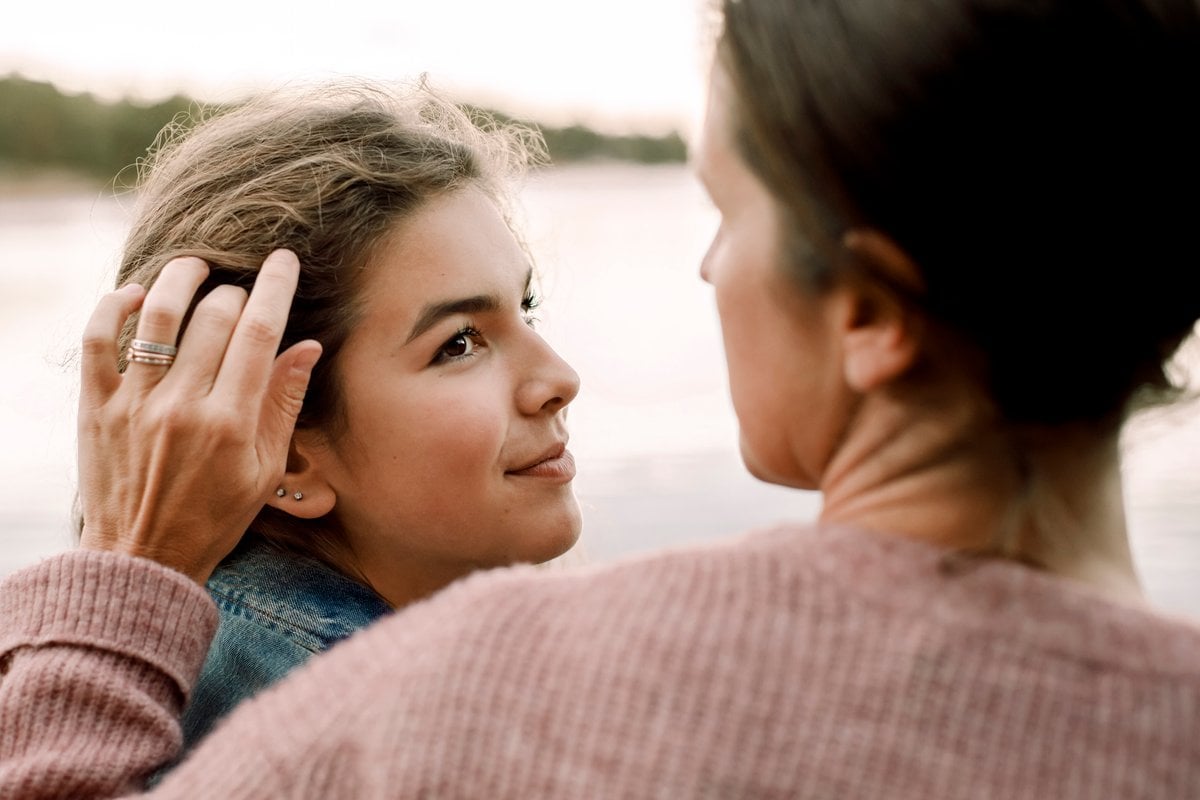
Cast your mind back to your 16-year-old self. What kind of topics would you chat to your mum about? Netball? Friendship dramas? Home and Away?
What about vibrators? Not so much? Yeah, me neither.
I was raised a Catholic. This means my guilt has guilt (which I feel really guilty about) and I believed that sex before marriage would see me ravaged by the flames of hell for all of eternity.
How are women having sex? The juiciest results from the Mamamia Sex Survey. Post continues below.
Research shows this is not unique to Catholics (well, the flames of hell part, maybe). The majority of Australians have grown up with secrecy and shame around the topic of sex.
But it seems times are changing.
On an episode of Mamamia Out Loud, a mother wrote in with a dilemma that got people talking: her 16-year-old daughter wanted a vibrator and she'd asked her mum to help her get it.
As teenagers do, she presented a pretty solid argument. She said if she was in a relationship, she would most likely be having sex. She also said that it’s perfectly acceptable for boys to pleasure themselves and that a lot of girls her age are using these devices.




























































































